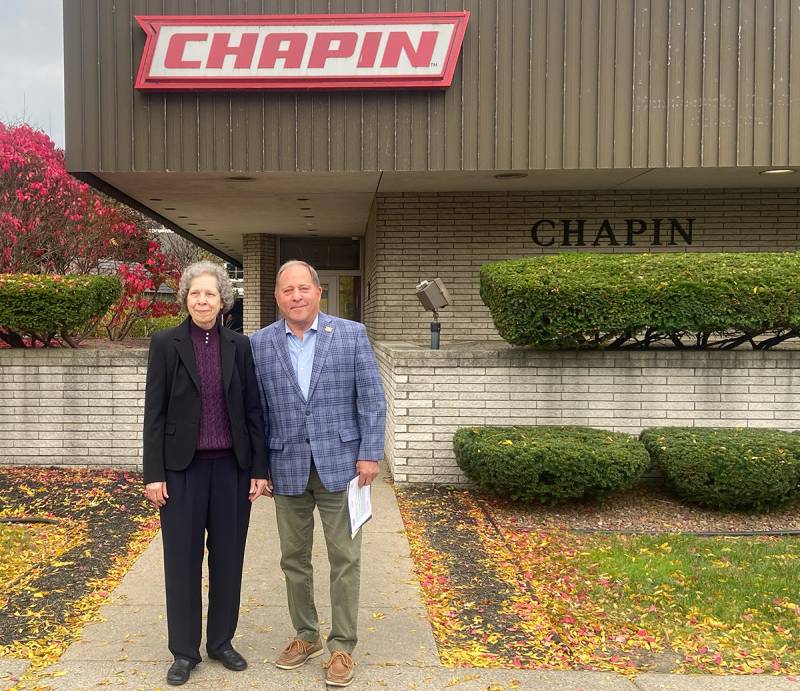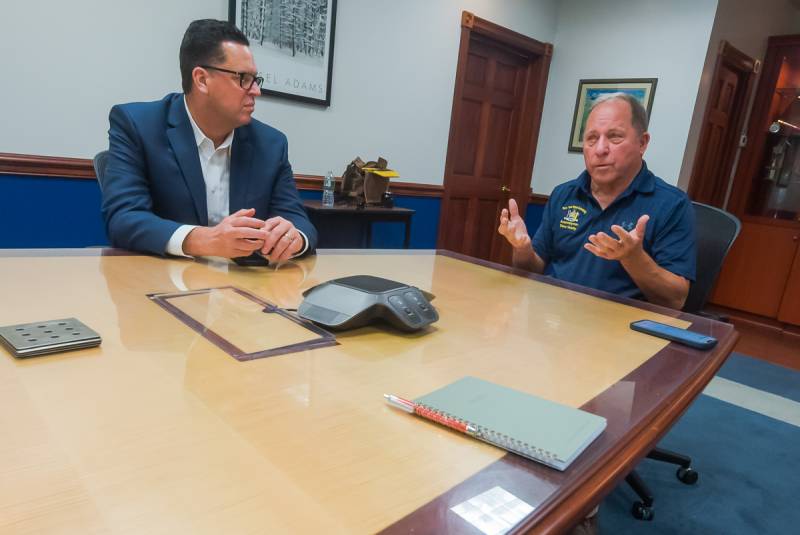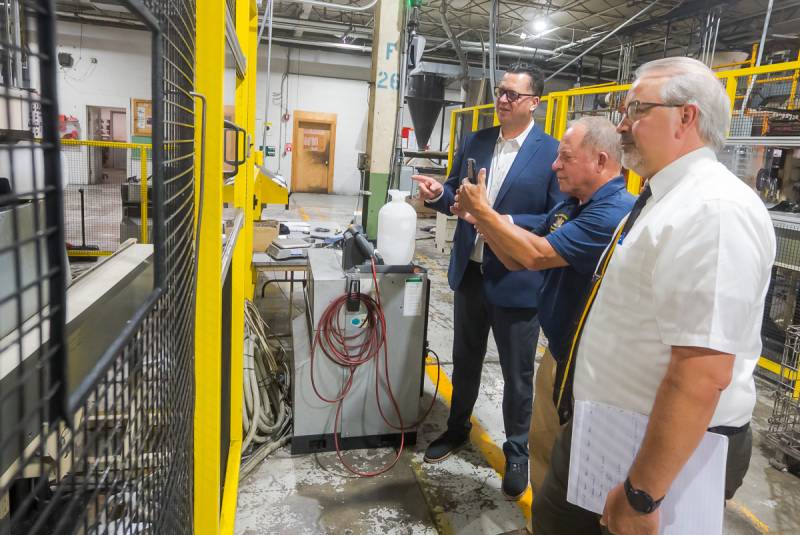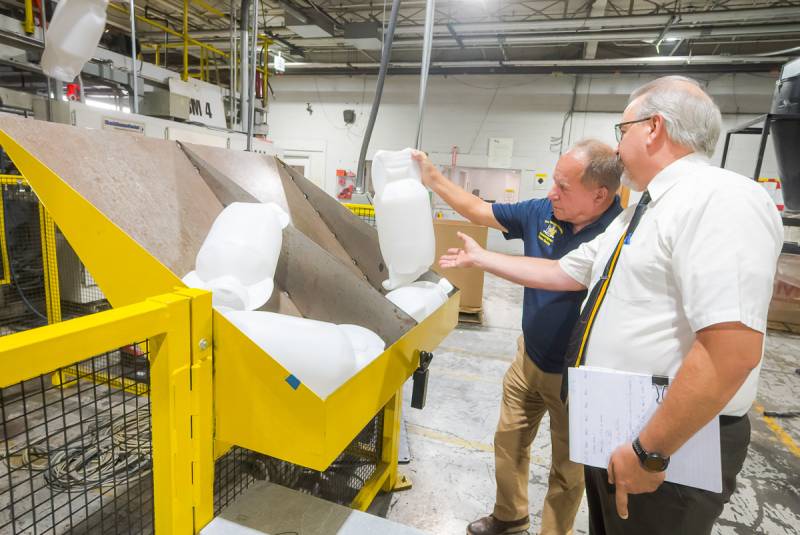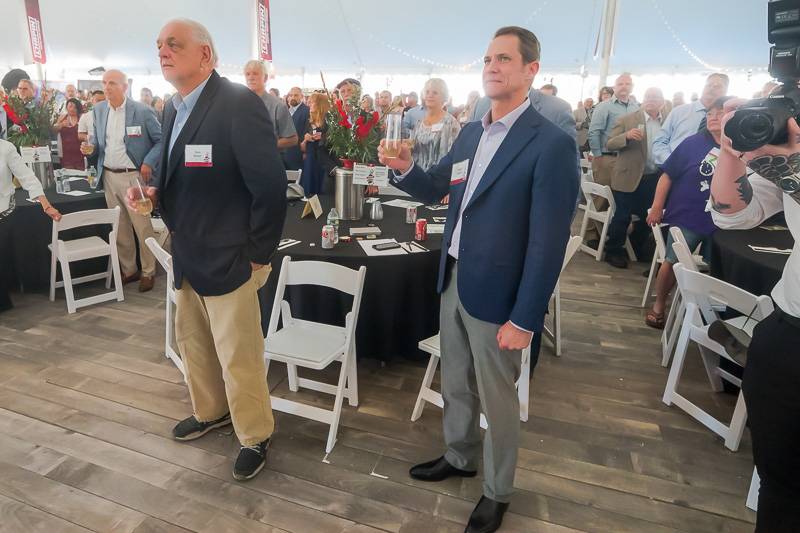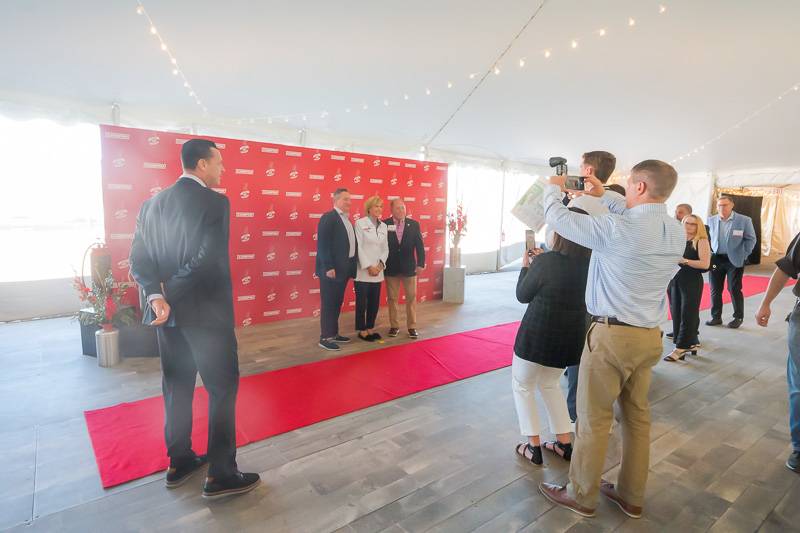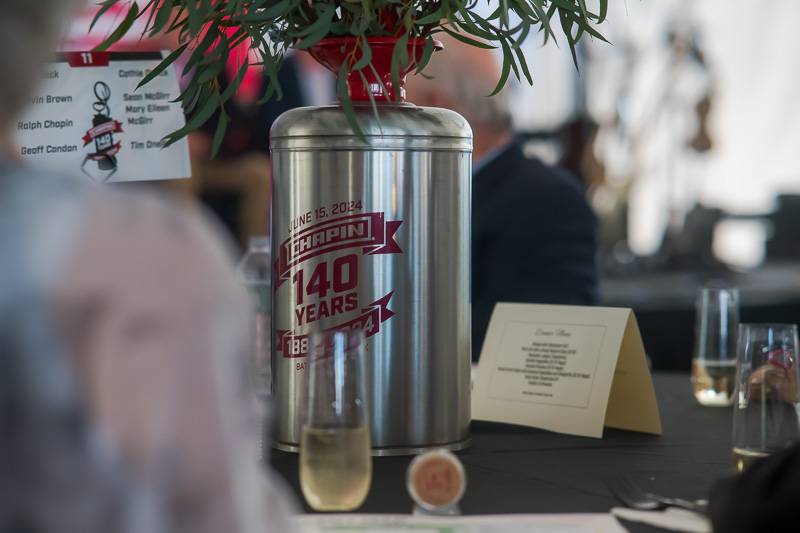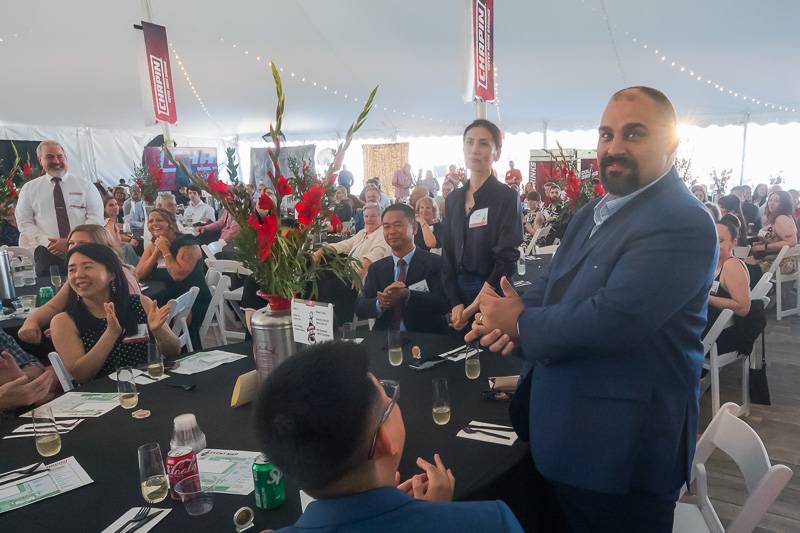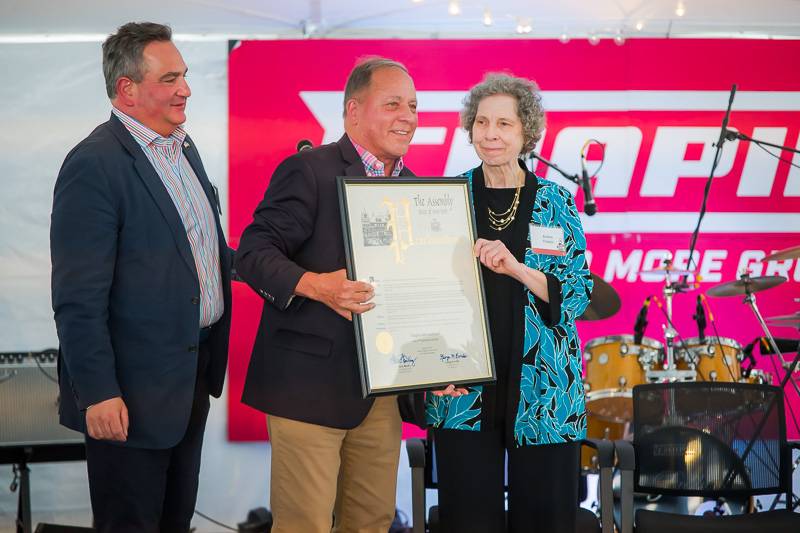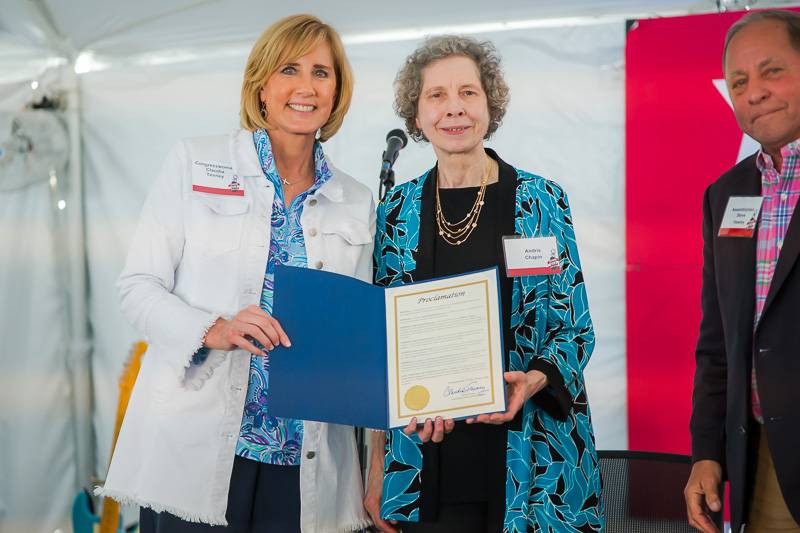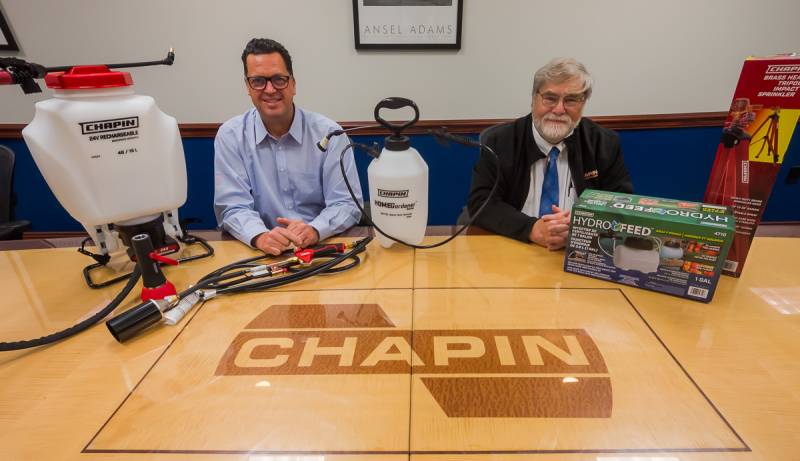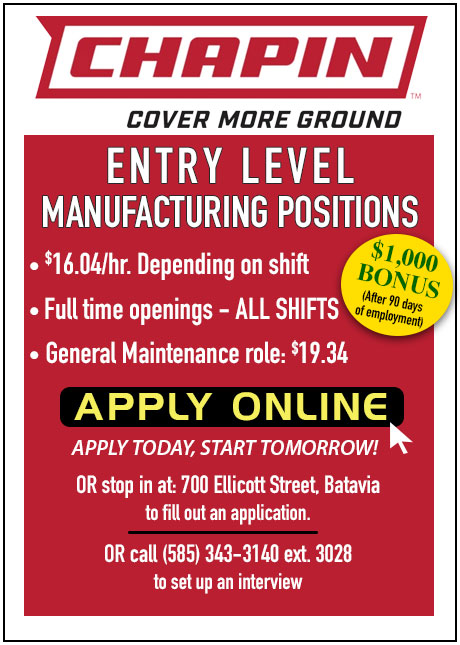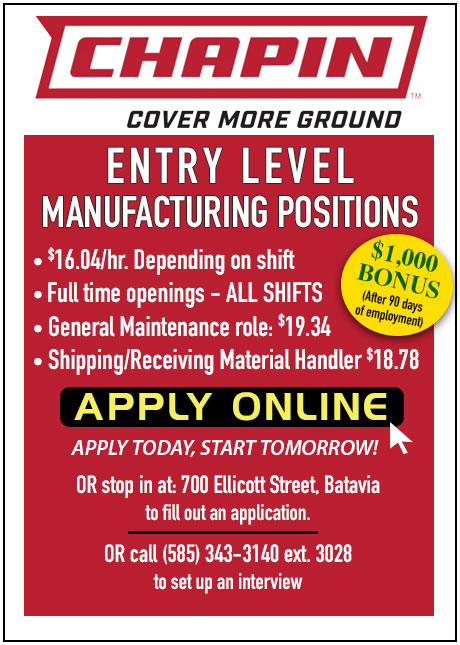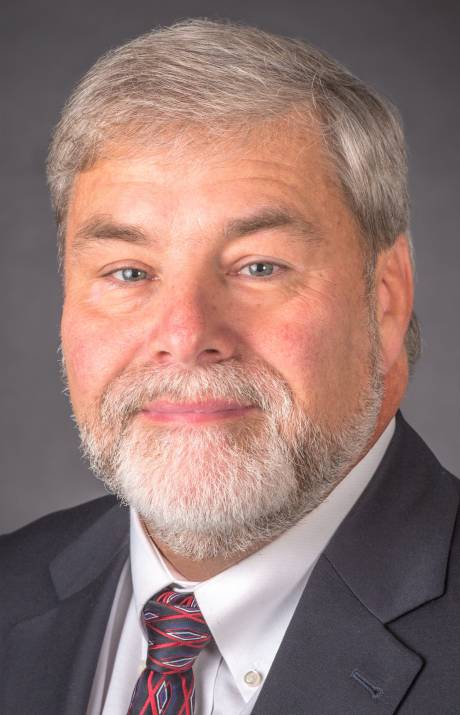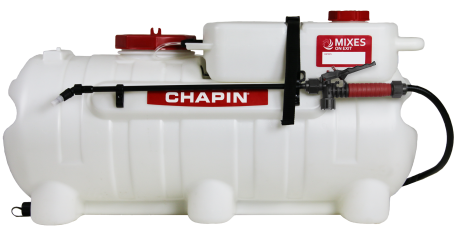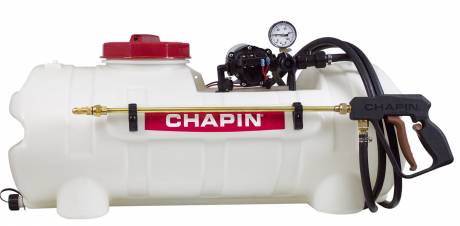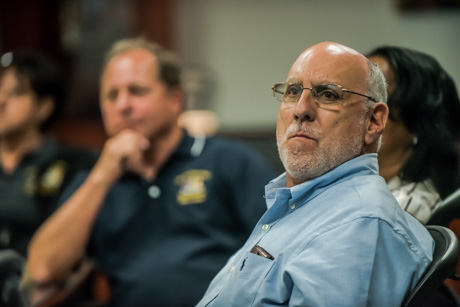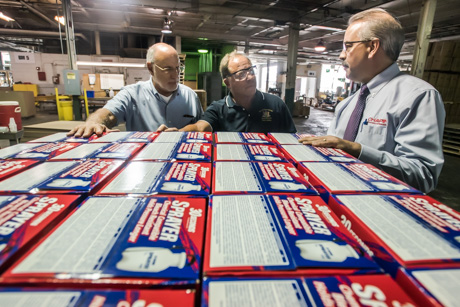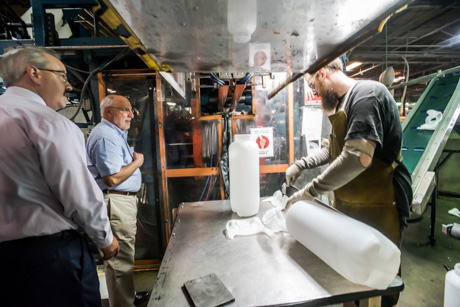Jim Campbell, president and chief executive officer of Chapin International Inc., says the current labor situation in New York State is forcing him to “right size” operations at the Batavia facility on Ellicott Street.
“I can’t get people to work and the way the state is going, I have to right size my operation in Batavia,” Campbell (photo at right) said by telephone this morning. “We’re moving equipment out of Batavia and it’s work that we’ve done here in the past. We’ve pulled out some of that equipment and moved that to Mount Vernon.”
The Mount Vernon that he mentions is the community in Kentucky where, last October, Chapin expanded its compressed sprayer operation by purchasing the 175,000-square-foot former Eagle Manufacturing plant in the Rockcastle Business Park.
The $5.495 million investment has produced positive results in the Bluegrass State as production and warehousing capacity has increased, Campbell said, adding that the company is looking to buy another 500,000-square-foot building about 30 minutes from Mount Vernon.
“On a daily basis, without advertising, we have five or six people just come to our door wanting work. They show up and we interview them right then,” Campbell said. “We’ll be up to 100 employees in Kentucky by February or March, so we’re more than halfway there already. People there are eager to work.”
A Different Story in Batavia
The same can’t be said for what is happening in Batavia, the home base of the company that produces and ships high-quality compressed air sprayers and hand sprayers. The firm’s origin dates back to 1884 when Oakfield resident Ralph E. Chapin set up the manufacturing plant in Batavia.
“(Eight months ago) all the production that we put in Kentucky was expansion and new machines that we purchased from an automotive company and moved them into Mount Vernon. We got those up and running,” Campbell said. “But now, we’ve removed some resin blow molders out of Batavia and moved them to Mount Vernon. Two of them are in production already.”
Campbell said that despite paying prevailing wages and offering referral incentives to employees, the Chapin plant in Batavia is suffering from a shortage of workers.
“We’re 20 to 30 people short every day although the pay scales (in Batavia and Kentucky) are exactly the same -- $22 to 23 an hour – with entry level people starting around $14 to 15 an hour,” Campbell said, noting that overall, the number of employees in Batavia is down from a desired 285 to about 240.
He attributes the problem to unemployment insurance and other New York State mandates that are hampering the business community.
“The additional $300 a month that the federal government is giving (is a key factor) plus people can get health insurance free for six months,” Campbell said. “We have a great benefits package – health care, 401(k), vacation -- but entry-level people can make the same amount of money with the bonus money that the federal government is giving as coming to work, so people don’t bother. Or they’re not interested in staying. They come for a couple days and leave, and get back on unemployment.”
Extended Unemployment Hurting Business
Campbell put the blame squarely on the state Department of Labor.
“Unemployment isn’t like what it was in the old days when we thought about it. If you quit your job, you couldn’t get unemployment for six or eight weeks – or if you got fired – now they just give it to you, no matter what. Plus, the unemployment people – I hate to say it – aren’t doing their job,” he said.
“Back in the day, you had to look for work to get unemployment. You had to say, ‘I went here, I went there.’ Well, nobody does that anymore. You get whatever it is – number of months, weeks – and you’re all set.”
He said that four or five employees have taken advantage of the company’s offer to give them a $1,000 bonus by referring someone who joins the Batavia workforce and stays for 90 days, but it’s not enough.
“The situation is definitely affecting our shipments. Our people are pretty productive – the ones who are there – but we can’t build as much as we want, especially on second shift,” he said. “We’re shutting machines down every day that we have orders for. We’re a company that prides itself on shipping on time … we have a tremendous backlog now. I can’t even dig into my backlog.”
Other Factors: Sick Leave, HERO Act
Campbell also mentions the state’s new sick leave policy and the HERO (Health and Essential Rights) Act as obstacles.
“(Gov. Andrew) Cuomo’s a vindictive guy; you hate to say too much, you know, but a few months back they put in a sick leave policy where everyone gets 56 hours of paid sick leave,” he said. “We negotiate all of those things, and that will be negotiated in the next contract, of course.
“Fifty-six hours is way more than anyone ever took, but now it’s like vacation time and it’s paid 100 percent. When you’re running production lines and people don’t give any notice that they’re not coming in, it just shuts equipment down, other people don’t have work. It’s just a terrible situation.”
He called the HERO Act “a horrible thing” for companies outside of the public healthcare arena.
“We take care of sanitation and other things, but supposedly this was for permanent airborne disease – trying to stop it in the future,” he said. “We’re taking something that is applicable to hospitals and old folks’ homes and applying it to manufacturing. The thing goes into effect the first week of June and we don’t even have the laws from OSHA (Occupational Safety and Health Administration) yet saying how it affects manufacturing, in general.”
Then, there is the matter of taxes.
“And now Cuomo is saying he’s going to raise the taxes on businesses in New York State. It’s getting impossible. First, we don’t have people. Wages are … we’re in an inflationary period no matter what anybody says. I don’t care what the federal government says,” he offered.
Campbell said costs of raw materials, such as high-density polyethylene, which has gone from 58 cents a pound to more than $1 a pound, are up considerably and those increases get passed on to the consumer.
More Equipment is Heading South
What all this means is that more blow molders will have to be relocated from Batavia to Kentucky, reducing the number here to about eight, Campbell said.
“In Batavia, we had 15 blow molders – some with five heads that can build five sprayer models at a time and some with two, three or single heads,” he said. “The single-headed ones, which are less efficient, I moved those to Kentucky. Then, a month ago, I moved a three-headed blow molder, and in another month, I’ll move a sister machine to Kentucky.”
For a company firmly entrenched in Genesee County for so long, the labor trend is unsettling, Campbell admitted.
“In the end, we’re a high-volume, low-margin business that makes millions and millions of sprayers per year. But they’re not big margin. You’ll see us spending a lot more money on automation,” he said. “I’ve been the president now for 17 years and I’ve never laid one person off due to automation or business reasons because we’ve grown every year.”
Until more potential workers come knocking on the door at the Chapin Manufacturing facility at 700 Ellicott St., Campbell said he has to ensure that he’s “right sizing it to the amount of people I can get.”
“This is where Chapin would like to keep the headquarters,” he said. “We’re staunch allies of Batavia and Genesee County. New York State? Not so much.”
Previously: LIVE: Interview with Bill Campbell, VP, Chapin International
Previously: Chapin Manufacturing CEO says Kentucky investment continues 'expansion of organic growth'

